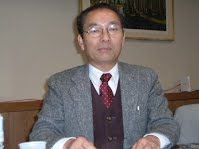Workshop 1 Introduction to MMRThis workshop will help attendees capitalize on the strengths of quantitative and qualitative research to advance knowledge and understanding in the social, behavioral, and health sciences. After briefly reviewing the concepts of qualitative and quantitative research, the workshop will be organized around the following eight steps in the mixed methods research process: (1) Determine whether a mixed methods design is appropriate; (2) Determine the rationale for using a mixed methods design; (3) Select a mixed methods research design and mixed sampling design; (4) Collect the data; (5) Analyze the data; (6) Continually validate the data; (7) Continually interpret the data and findings; (8) Write the research report. For maximum impact, students should arrive with a set of research questions that they hope to address in a research study of interest. The students will leave the workshop with an initial mixed methods design for their planned research studies. Prerequisites: none, but basic knowledge of quantitative and qualitative research is desirable. *This workshop will be conducted using both English and Japanese. R. Burke JOHNSON (University of South Alabama) R. Burke Johnson, PhD, is a research methodologist. He is Professor in the Department of Professional Studies, at the University of South Alabama. He holds three masters degrees (psychology, sociology, and public administration), and his PhD is from the REMS Program (Research, Evaluation, Measurement, and Statistics) at the University of Georgia. He coauthor or coeditor of six books, three of which are (a) Educational Research: Quantitative, Qualitative, and Mixed Approaches (2014, 5th ed., Sage), (b) Research Methods, Design, and Analysis (2014, 12th ed., Pearson), and the Oxford Handbook of Multi and Mixed Methods Research Inquiry (2015, Oxford University Press). He is author or coauthor of numerous articles and chapters and has published in journals such as the Educational Researcher, Journal of Mixed Methods Research, International Journal of Multiple Research Approaches, Quantity and Quality, Journal of Educational Psychology, American Behavioral Scientist, Educational Technology Research and Development, Personality and Individual Differences, Evaluation Review, and Evaluation and Program Planning. Dr. Johnson was an Associate Editor with the Journal of Mixed Methods Research during its first term (the lead and founding editors were John Creswell and Abbas Tashakkori), and was guest editor of two special issues on mixed methods research: (a) American Behavioral Scientist (https://abs.sagepub.com/content/56/6.toc) and (b) Research in the Schools (https://www.msera.org/rits_131.htm). Dr. Johnson is currently focusing his efforts in the areas of mixed methods research and the philosophy of social science. Michael D. FETTERS (University of Michigan)Michael D. Fetters, MD, MPH, MA is a family medicine researcher and Professor in the Department of Family Medicine at the University of Michigan and is Director and Founder of the University of Michigan Japanese Family Health Program. He is the principal investigator on the project, SMARTER FM, the Shizuoka-University of Michigan Advanced Residency Training Experience and Research in Family Medicine, that promotes the development of Family Medicine regionally in Shizuoka Prefectures where he was a high school exchange student in 1979.Dr. Fetters has authored over 150 scholarly articles and chapters on topics in family medicine, medical education, ethics and research methodology. Many of these involve cross-national comparisons between Japan and the United States. Dr. Fetters has served as the principal investigator or methods lead on multiple NIH and AHRQ funded studies using mixed methods techniques, and given multiple mixed methods workshops. Since January 2015, he served as Co-Editor, Journal of Mixed Methods Research. He serves as President, Asia Regional Conference of Mixed Methods International Research Association in Japan. Workshop 2 State-of-the-Art Developments in Mixed Methods Research DesignsMixed methods research has expanded around the world and across disciplines in the social, behavioral, and health sciences. So too have the procedures for conducting a mixed methods study. This workshop begins with an introduction to mixed methods and essential characteristics of mixed methods designs. We then pose a research scenario which will require an advanced mixed methods design to adequately address. Participants will engage in a series of exercises that will create a mixed methods project using state-of-the-art procedures by placing the design at the center of the project. In doing so, we identify recent innovations in mixed methods designs including comparative case studies and intervention mixed methods designs. We conclude by highlighting procedures to enhance the rigor of a design, such as differentiating intent, drawing diagrams, noting threats to validity, and identifying points of integrating. Throughout the workshop participants are expected to share ideas and interact among themselves. *This workshop will be conducted in English. John W. CRESWELL (University of Nebraska-Lincoln)John W. Creswell, Ph.D. is Professor of Educational Psychology at the University of Nebraska-Lincoln and currently serves as a co-director at the Office of Qualitative and Mixed Methods Research at the University of Nebraska. He served as the founding Co-Editor for the Journal of Mixed Methods Research and as an Adjunct Professor of Family Medicine at the University of Michigan where he assisted investigators in the health sciences and education with research methodology for National Institute of Health (NIH) and National Science Foundation projects. He also served extensively as a consultant in the health services research area for the Veterans Administration. Dr. Creswell was a Senior Fulbright Scholar to South Africa and in 2008 and lectured to faculty at five universities on education and the health sciences. Recently he served as a co-leader of a national working group developing guidelines for mixed methods research for the NIH. Dr. Creswell has authored numerous articles on mixed methods research, qualitative methodology, and general research design as well as 12 books, many of which focus on types of research designs, comparisons of different qualitative methodologies, and the application of mixed methods research. His books are translated into many languages and used around the world. Benjamin F. CRABTREE (Rutgers Robert Wood Johnson Medical School)Dr. Benjamin F. Crabtree, PhD, is a medical anthropologist and is Professor and Director of Research at the Department of Family Medicine and Community Health, Rutgers Robert Wood Johnson Medical School. In 2014 he was awarded the prestigious Curtis G. Hames Research Award for lifetime contributions to family medicine research. A primary care researcher in family medicine for the past 30 years, Dr. Crabtree has contributed to more than 200 peer-reviewed articles and chapters on research using both qualitative and quantitative methods, covering topics ranging from time series analysis and log-linear models to in-depth interviews, case study research, and qualitative analysis strategies. Dr. Crabtree has been principal investigator on multiple large National Institutes of Health (NIH) funded grants to test organizational change strategies for enhancing quality of care in primary care practices using a conceptual framework based on complexity science concepts. Known for his expertise in qualitative research, Dr. Crabtree writes extensively in this area, including the book he and William Miller edited, Doing Qualitative Research, now in its 2nd Edition. He was Guest Editor of a 2013 special issue of Health Services Research that focused on the use of mixed-methods in health care.Workshop 3 The Gounded Text Mining Approach as a New Technique for Mixed Methods ResearchThe purpose of this workshop is to introduce the Grounded Text Mining Approach (GTMA), a new mixed methods approach that combines the qualitative data analysis (QDA) approach adopted from the constructivist grounded theory method (Charmaz, 2006) and a text mining technique. GTMA is a type of a “conversion mixed design,” which integrates quantitative and qualitative data by transforming one type to another (Teddlie & Tashakkori, 2009). The text mining technique is a combination of computer-based natural language processing and its statistical visualization. This technique allows researchers to objectively extract meaningful pieces of information out of unstructured text data.In this workshop, the instructors outline the GTMA’s framework and its spiral data analysis process that involves: (1) careful reading of transcripts, (2) an emergent coding technique adopted from the constructivist grounded theory approach, (3) a computational linguistic analysis using the text mining technique, and (4) convergent and divergent integration of results obtained from the preceding steps. *This workshop will be conducted in Japanese. Mitsuyuki INABA (Ritsumeikan University)Mitsuyuki Inaba is Professor at the College of Policy Science, Ritsumeikan University, Kyoto, Japan. He is also the director of the Center for Forensic Clinical Psychology at Ritsumeikan University, a board member of the Digital Humanities Center for Japanese Arts and Cultures (DH-JAC) of Ritsumeikan University, and an associate member of the Laboratory of Comparative Human Cognition (LCHC) at University of California, San Diego.Prof. Inaba is co-author of “New Directions in Digital Humanities for Japanese Arts and Cultures” (Kyoto: Nakanishiya, 2009) and “Research Methods in Communication Studies” (Kyoto: Nakanishiya, 2011). He is the editor of “Digital Humanities Research and Web Technology “ (Kyoto: Nakanishiya, 2012). He has published many article and research papers on Text Mining, Computer-Assisted Qualitative Data Analysis (CAQDA), and Mixed Methods Research (MMR). Prof. Inaba is an executive board member of ADHO (Alliance of Digital Humanities Organizations) centerNet international committee, ADHO Multi-Lingual and Multi-Cultural committee, Japanese Association of Digital Humanities (JADH), and Information Professing Society of Japan (IPSJ) SIG Computers and the Humanities. He is a member of the Association for Computing Machinery (ACM), Japanese Society of Artificial Intelligence (JSAI), Japanese Cognitive Science Society (JCSS), and other academic associations. Hisako KAKAI (Aoyama Gakuin Univerisity)Dr. Hisako Kakai, PhD, is Professor of Intercultural Communication at the Department of International Communication, School of International Politics, Economics, and Communication at Aoyama Gakuin University in Tokyo. Her research interests include culture and its influence on health-related communication and the role of critical thinking in health-related decision-making. As a research associate at the Cancer Research Center of Hawaii in Honolulu, Dr. Kakai gained extensive research experiences in quantitative, qualitative, and mixed methods research projects. She has conducted research on various health- and education-related issues. Among them include studies on cancer patients’ complementary and alternative medicine use, cross-cultural comparisons on cancer disclosure to elderly patients, integrative oncology practice, and culture’s influence on the development of critical thinking dispositions. Dr. Kakai has published numerous articles and book chapters on these topics both in English and Japanese academic journals and books. She co-authored Research Methods in Communication Studies (Nakanishiya), a comprehensive research methods book in Japanese that covers quantitative, qualitative, and mixed methods approaches. She and her colleagues also translated Kathy Charmaz’s book on Constructing Grounded Theory (Sage) into Japanese. Dr. Kakai is currently running a series of articles about mixed methods research for a Japanese nursing research journal. She serves as an editorial board member of Journal of Mixed Methods Research (Sage).Workshop 4 Personal Attitude Construct (PAC) AnalysisTetsuo NAITO (Fukushima College)Tetsuo Naito, PhD, is a clinical social psychologist and Professor at the Division of Clinical Psychology, Graduate School of Psychology, Fukushima College. He is professor emeritus of Shinshu University.Dr. Naito majored in experimental social psychology as an undergraduate and graduate student at Waseda University. After graduating, he also engaged in industrial psychology and conducted research at a marketing firm. Eventually he secured an academic position in the School of Allied Medicine and was in charge of clinical psychology at Shinshu University. There, he also worked part-time as a clinical staff member at the children's consultation office for five years. Then he took an academic position as associate professor of social psychology in the School of Liberal Arts and Sciences, Shinshu University. Having been engaged in the problems of social adjustment with individual clients, he found it difficult only conducting theoretical research on the daily lives of average people. Social psychology and clinical psychology had fused together as social clinical psychology inside him. He was accustomed to listening to personal experiences and critically evaluating all relevant variables of each person. The concepts of oneness, uniqueness, history, holism and others had indelibly influenced him. He was strongly motivated to create a new scientific method for individual cases, namely, Analysis of Personal Attitude Construct (PAC Analysis). Free association by a client who is affected by a peculiar problem is one method for eliciting critical variables because it comes from the scheme of the informant. Each subject's scheme constitutes all of his or her personal experiences. A researcher can then conduct multivariate analysis without using means and standard deviations. In this approach, a researcher can ask clients to describe their own data, because there is only one client. A technique used to ask about positive and negative images for all associated items, it is called the “thought list technique.” It could be used to measure the degrees of conflict. Currently PAC Analysis is used extensively in the fields of psychology, Japanese language education, nursing science, sociology, marketing and others in Japan. His recent focus is on the cultural scheme of interpersonal relations and communication. *This workshop will be conducted in Japanese. Workshop 5 Trajectory Equifinality Approach and Textmining Analysis -- How can they be used synergistically?The trajectory equifinality approach is a qualitative methodology grounded in cultural psychology that captures processes and their genesis. A key characteristic is the use of data from interviews and observations to capture an individual’s life chronology and sociocultural context. Text mining on the other hand, captures characteristics such as the range of words that make up the text, the frequency of their appearance, and the relationality and structure of an individual’s words, and is useful for understanding aspects of an individual’s life. For example, during intake interviews and telephone consultations, it is crucial to accurately record answers to pre-designed questions obtained using semi-structured interviews, though at the same time, it is also necessary to capture the clients’ life behind the narrative by attentively listening to what is being said when the individual goes back and forth in time even though time flows irreversibly. Through the use of concrete examples, in this workshop participants will learn about the use of the trajectory equifinality approach, and explore its potential for mixed methods research by considering how it can be used synergistically with text mining procedures to understand a phenomenon.*This workshop will be conducted in Japanese. Mariko HIROSE (Kwansai Gakuin University)Mariko Hirose, M.A. is a clinical developmental psychologist and Research Associate in the Department of Psychological Sciences at Kwansei Gakuin University. Ms. Hirose engages in support services for youth affected by "Hikikomori," a social withdrawal syndrome. Currently, she serves as a community development support coordinator and in this role she developed a support program for adolescents with autism spectrum disorders and their families in cooperation with the local government. Using a mixed methods approach, Ms. Hirose utilizes the Trajectory Equifinality Model (TEM), a new qualitative and text-mining approach utilized to analyze narrative data elicited in clinical practice.Yuko YASUDA (Ritsumeikan University) Yuko Yasuda is a clinical psychologist and Associate Professor at Psychology Program in the College of Letters, Ritsumeikan University, Kyoto, Japan. She obtained a Doctor of Education degree from Kyoto University. Her major fields of study are clinical psychology and life-span developmental psychology. Yuko Yasuda is a clinical psychologist and Associate Professor at Psychology Program in the College of Letters, Ritsumeikan University, Kyoto, Japan. She obtained a Doctor of Education degree from Kyoto University. Her major fields of study are clinical psychology and life-span developmental psychology. She has been engaged in clinical care and research with a focus on crisis and resilience in each life cycle. Previously she conducted life-story research about the experiences of women with infertility. She has methodological interests in qualitative research methods and with others collaboratively developed the Trajectory Equifinality Approach (TEA). The TEA technique is used for multi-track analyses and is useful for assessing diversity of human development and life-trajectory. TEA is a methodological framework for analyzing qualitative data useful for understanding process and historical, cultural and social contexts. It was developed based on "Equifinality," a concept showing that individuals can follow multiple pathways to a single destination. Workshop 6 Practical strategies for analysis and integration of mixed methods dataThe approach taken to integration of diverse data sources and analytical approaches in mixed methods studies is a crucial feature of those studies. Models of integration in analysis range from discussing separately generated results from different components or phases of a study together as part of the conclusion, through synthesis of data from these different components, to combination of data sources or conversion of data types to build a blended set of results. While different models of integration are appropriate for different research settings and purposes, an overcautious approach to integration can generate invalid or weakened conclusions through a failure to consider all available information together. Strategies, including some that make use of NVivo software, for making the most of opportunities to integrate process and variable data in analysis to build strong and useful conclusions will be explained and illustrated through reference to a variety of mixed methods studies. The workshop will assume basic understanding of qualitative (text analysis) and statistical methods. It will be of particular value for graduate students as well as for academics and practitioners who are feeling overwhelmed with data and are wondering what to do with it and how to advance their analysis of it. *This workshop will be conducted in English. Pat BAZELEY (MMIRA President Elect)Pat Bazeley was awarded a PhD in community psychology for an action research based thesis which argued that community development was an effective strategy for the promotion of mental health in a disadvantaged population. After graduating she worked in community development and as a freelance researcher, undertaking projects in public health, welfare, education, law and community studies. From 1991-9 she was responsible for research development and administration for academic staff at the University of Western Sydney, Macarthur. Currently, she is a (very) part time Associate Professor in the Centre for Primary Health Care and Equity at the University of New South Wales. From 2000-2013 Pat provided research training, consulting and retreat facilities for researchers at Bowral, in the southern highlands of NSW. Currently, she provides training and consulting services for academics, graduate students and practitioners in universities, government departments and commercial organisations both locally and internationally. Her particular expertise is in helping researchers to make sense of both quantitative and qualitative data and in using computer programs for management and analysis of data. Her passion is to help people move beyond simple descriptive analyses of rich data. Pat has a particular interest in mixed methods research, where she is exploring tools and techniques for integrating analyses of different forms of data, and the methodological implications of doing so. She is currently on the Editorial Boards for the Journal of Mixed Methods Research and Qualitative Health Research, having served in the past as an Associate Editor of the Journal of Mixed Methods Research. She has published books, chapters and articles on qualitative and mixed methods data analysis. She has also published on immunization services, and on the career development and performance of researchers. |








